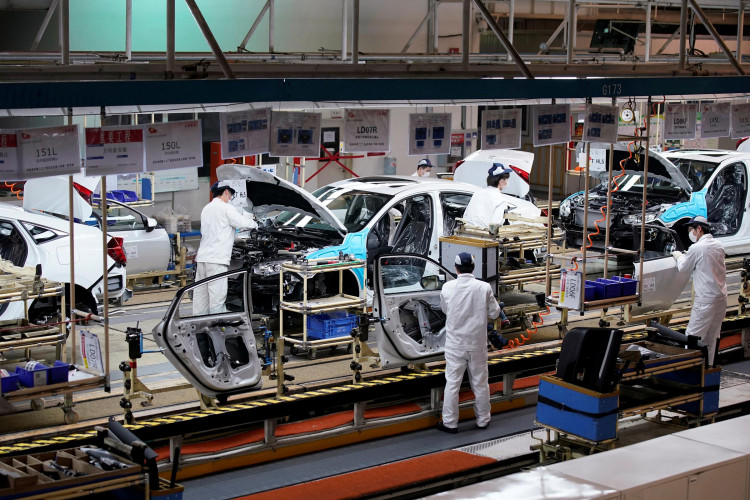Honda Motor Co. and Nissan Motor Co. announced a collaborative effort to advance electric vehicle (EV) and intelligent technology development. This historic partnership marks a departure from the traditional rivalry between Japan's second and third-largest automakers, as they join forces to navigate the rapidly evolving EV sector.
During a joint press conference in Tokyo, the chief executives of both companies unveiled plans to explore potential areas of cooperation, emphasizing the urgency of developing technological solutions to remain competitive. "We don't have time," declared Nissan Chief Executive Makoto Uchida, highlighting the critical nature of this collaboration amidst common challenges faced by both firms.
The non-binding agreement, which is still in the early stages of development, aims to combine resources to enhance core technologies while ensuring that each company's products retain their unique identities. This strategic move is driven by the global automotive industry's pivot towards electric vehicles, motivated by growing environmental concerns and the imperative to reduce emissions.
Historically, Japanese automakers have been pioneers in combustion engine vehicles, leading to a slower adaptation to the EV market compared to international counterparts like Tesla from the U.S. and BYD from China. Toyota Motor Corp., despite being the world's largest automaker, has expressed skepticism about a complete transition to EVs, citing infrastructural challenges. However, an aggressive push towards electric vehicles is anticipated in the coming years.
Nissan, having introduced the Leaf as one of the first mass-market EVs in 2010, holds a relatively advanced position in the electric vehicle domain among Japanese manufacturers. This collaboration with Honda is expected to further strengthen its foothold and drive innovation.
The partnership has already sparked positive reactions in the financial markets, with noticeable increases in the stock prices of both companies following reports of the potential deal. While the agreement does not currently involve mutual capital ownership, the possibility of such arrangements may be considered in the future.
The alliance reflects a broader trend in the automotive industry, where traditional manufacturers are reevaluating their strategies to compete with newer, more agile players in the EV market. Chinese manufacturers, in particular, have gained significant ground, with companies like BYD surpassing Tesla in sales and presenting a formidable challenge due to their access to cheaper resources and a vast domestic market.
The collaboration between Honda and Nissan is seen as a response to these competitive pressures, with both companies aiming to leverage their combined expertise to accelerate technological advancements and cost efficiencies. As the EV sector continues to grow, such partnerships may become increasingly common, reshaping the industry's dynamics and fostering a more collaborative approach to innovation.






